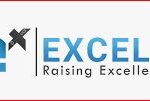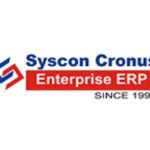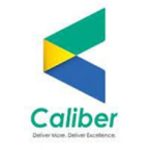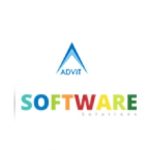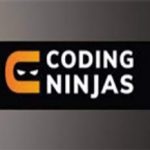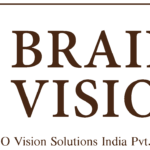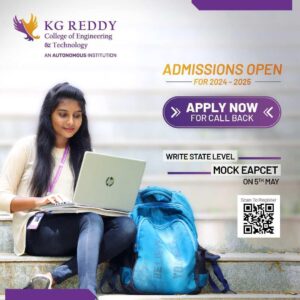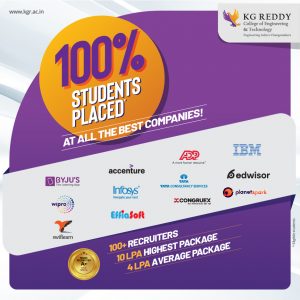About Department
Computer Science and Engineering is one of the fastest-growing career fields in modern history. Dating back only a few decades, it has become the most leading industry in the world today. A career in the field of computer science and engineering has been proven to be a worth-while direction for many young enthusiasts and this trend is looking very bright in the new millennium.
The Department of Computer Science and Engineering was established in the year 2008 with an intake of 60 in B.Tech. Computer Science and Engineering (CSE). Consequently, the intake is increased to 180 in the 2023.
Department is equipped with well-qualified and dedicated faculty members to train students towards their holistic development. Currently, there are 06 members of faculty with a Ph.D. qualification in the department of the best engineering college for computer science.
The department provides students with learning mechanisms to develop Computing Systems and Software. Students of this B.Tech. Computer Science College are facilitated with high-end computers, servers, libraries with the latest Titles, NPTEL Courseware, and Journals alongside High-Bandwidth internet to facilitate effective learning.
Students are imparted with training in cutting-edge technologies through Seminars, Workshops, and Guest Lectures alongside Technical Symposiums/paper contests; and co-curricular and Extra-curricular events through the technical associations of the department. Strong mentoring by the faculty members to monitor student progression and personality development.
Vision
To become an institution which is internationally recognized for its holistic approach to engineering, innovative teaching and learning culture, research and entrepreneurial ecosystem, and sustainable social impact in the community.
Mission
- To offer undergraduate and post-graduate programs which are supported through industry relevant curriculum and innovative teaching and learning processes that would help students succeed in their professional careers.
- To provide faculty and students with an ecosystem that fosters innovation, research, entrepreneurship, and international exposure through strategic partnerships with government organizations and collaboration with industries.
- To provide holistic learning environment to students which will contribute to their personal and professional growth and enable them to become leaders in their respective fields.
- To contribute to the development of the region by using our technological expertise to work with nearby communities and support them in their social and economic development.
Program Outcomes
PO I: Engineering knowledge: Apply the knowledge of mathematics, science, engineering fundamentals, and an engineering specialization to the solution of complex engineering problems.
PO II: Problem analysis: Identify, formulate, review research literature, and analyze complex engineering problems reaching substantiated conclusions using first principles of mathematics, natural sciences, and engineering sciences.
PO III: Design/development of solutions: Design solutions for complex engineering problems and design system components or processes that meet the specified needs with appropriate consideration for the public health and safety, and the cultural, societal, and environmental
considerations.
PO IV: Conduct investigations of complex problems: Use research-based knowledge and research methods including design of experiments, analysis and interpretation of data, and synthesis of the information to provide valid conclusions.
PO V: Modern tool usage: Create, select, and apply appropriate techniques, resources, and modern engineering and IT tools including prediction and modeling to complex engineering activities with an understanding of the limitations.
PO VI: The engineer and society: Apply reasoning informed by the contextual knowledge to assess societal, health, safety, legal and cultural issues and the consequent responsibilities relevant to the professional engineering practice.
PO VII: Environment and sustainability: Understand the impact of the professional engineering solutions in societal and environmental contexts, and demonstrate the knowledge of and need for sustainable development.
PO VIII: Ethics: Apply ethical principles and commit to professional ethics and responsibilities and norms of the engineering practice.
PO IX: Individual and team work: Function effectively as an individual, and as a member or leader in diverse teams, and in multidisciplinary settings.
PO X: Communication: Communicate effectively on complex engineering activities with the engineering community and with society at large, such as, being able to comprehend and write effective reports and design documentation, make effective presentations, and give and receive clear instructions.
PO XI: Project management and finance: Demonstrate knowledge and understanding of the engineering and management principles and apply these to one’s own work, as a member and leader in a team, to manage projects and in multidisciplinary environments.
PO XII: Life-long learning: Recognize the need for, and have the preparation and ability to engage in independent and life-long learning in the broadest context of technological change.
Program Specific Outcomes
PSO1: The Computer Science and Engineering graduates are able to analyze, design, develop, test and apply management principles, mathematical foundations in the development of intelligent systems with computational solutions, make them to expert in designing the secure application and hardware prototype.
PSO2: The graduating student will be analyze the contemporary research issues in different areas of computer science & engineering and explore research gaps, analyze and carry out research in the specialized/emerging areas.
PSO3: Develop their skills to solve problems in the broad area of programming concepts and appraise environmental and social issues with ethics and manage different projects in multi-disciplinary field to conducive in cultivating skills for successful career, entrepreneurship and higher studies.
Program Educational Objectives
PEO 1: Graduates will provide solutions to difficult and challenging issues in their profession by applying computer science and engineering theory and principles.
PEO 2: Graduates have successful careers in computer science and engineering fields or will be able to successfully pursue advanced degrees.
PEO 3: Graduates will communicate effectively, work collaboratively and exhibit high levels of professionalism, moral and ethical responsibility.
PEO 4: Graduates will develop the ability to understand and analyse engineering issues in a broader perspective with ethical responsibility towards sustainable development.
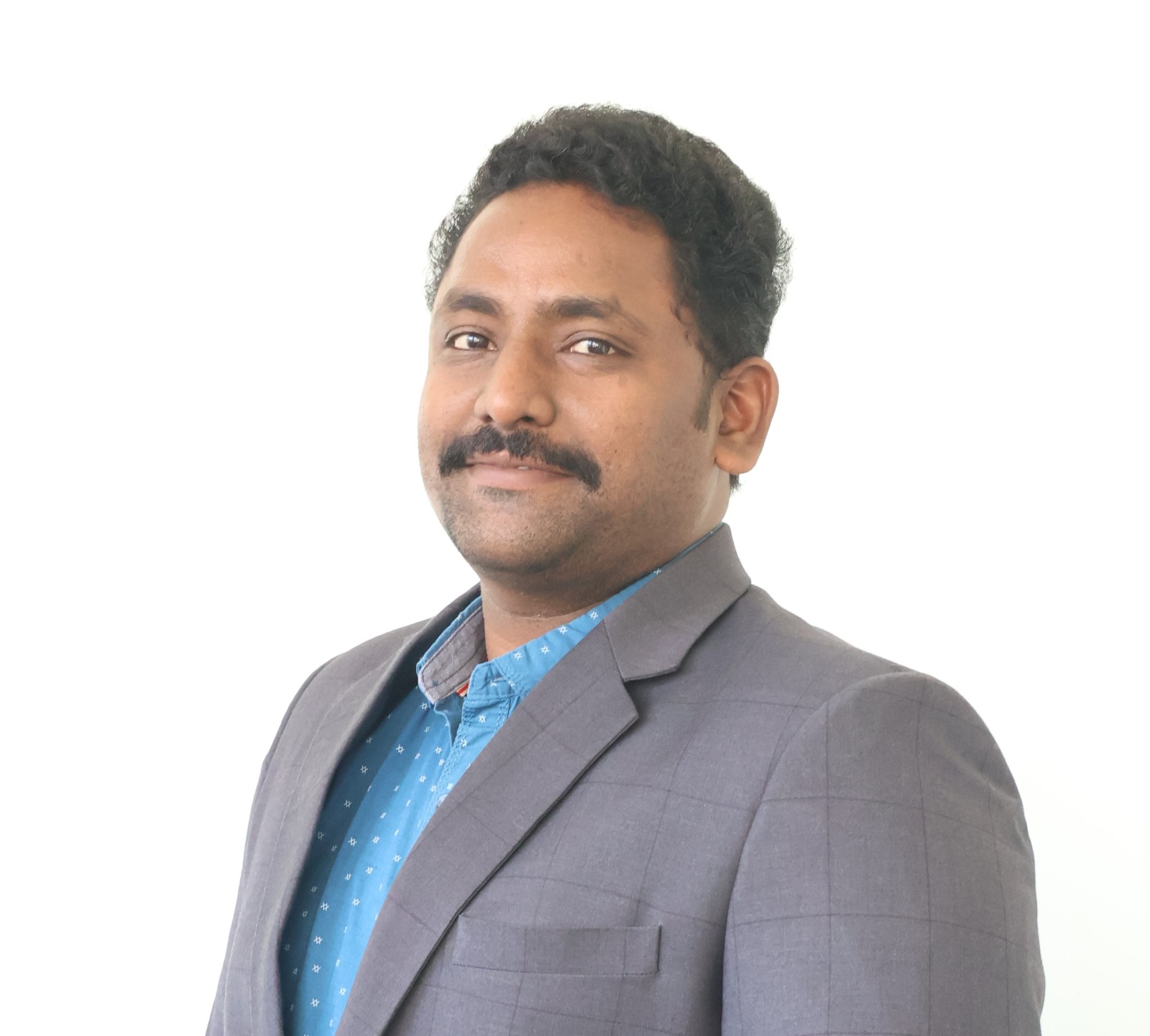
Dr.S.Bharath Reddy
Associate Professor & HoD
+91 9176318313
hod.cse@kgr.ac.in
Dr. SADDA BHARATH REDDY is Working as Associate Professor and in the department of CSE, K G Reddy College of Engineering and Technology at, Hyderabad, India. He received his PhD in Computer Science and Engineering at the SRM University in 2019. He received his Master of Technology (M-Tech) from Jawaharlal Nehru Technological University, Kakinada, India in 2012. He received his Bachelor of Technology (B-Tech) from Jawaharlal Nehru Technological University University, Ananthapur, India in 2010. He was an Assistant Professor at SSN Engineering College from October 2012 to July 2017. He was an Associate Professor at SSN Engineering College from July 2017to December 2021 and worked as Associate professor in the department of Artificial Intelligence and Machine Learning(AIML) at Vardhaman College of Engineering, Hyderabad His research interests are Artificial Intelligence, Network Security, Cloud Computing, Computer Networks, Internet of Things. He has published 4 SCI journal papers and 10 Scopus journal papers.
HOD’s Message
Today in the real world, many successful applications have been developed based on artificial intelligence and Machine learning. Applications that use AI and ML in our everyday lives are like Google Maps, Amazon, Flipkart, Swiggy, Carpooling services like Uber , Ola, Music apps like Wynk and Spotify, Smart Personal Assistants like Alexa, Social media Apps like Facebook, Twitter and Instagram, Movie Recommendations & Video Games.
The CSE with AI & ML specialization at the best ML and AI Engineering College covers Linear algebra, statistics, foundations of artificial intelligence, formal concepts and models, natural language processing, artificial neural networks, machine learning, soft computing tools and deep learning, Internet of things, computer vision systems, and intelligent agents.
Graduates in CSE-AI& ML find jobs as Machine Learning Engineer, Data Analyst, Data Scientist, Big Data & AI Architect, Big Data Scientist, Artificial Intelligence Engineer, Research Engineer – Artificial Intelligence, Machine Learning Architect, Research Engineer – Artificial Intelligence, Software Engineer & IoT Architect, Data and AI Consultant & Robotics Professional.
We are having Institutional Professional body membership like Computer Society of India (CSI) and IEEE Student Chapter.

Dr. S. SAI SATYANARAYANA REDDY
Principal & Professor
principal@kgr.ac.in

Dr. S Bharath Reddy
HoD & Associate Professor
hod.cse@kgr.ac.in
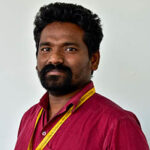
Dr. B. Hari krishna
Associate Professor
haribommala@kgr.ac.in

Dr. Srinivas Jhade
Associate Professor
srjhade@kgr.ac.in

Dr. Raghu Kumar L
Associate professor
lrgupta528@kgr.ac.in

Dr. Shiva Shankar Subramanian
Associate Professor
drsivashankars@kgr.ac.in

Dr. R. Sowjanya
Associate Professor
sowjanya.ramisetty@kgr.ac.in

Dr K Ramakrishna Reddy
Associate Professor
krkreddy20@kgr.ac.in

Mr. Y. Venkat Rao
Assistant Professor
venkat@kgr.ac.in

Mr. M. Lakshmi kanth
Assistant Professor
mlaxmikaanth@kgr.ac.in

Ms. T. Sruthi
Assistant Professor
shruthireddy587@kgr.ac.in

Ms. Manasa
Assistant Professor
goparajumanasa24@kgr.ac.in
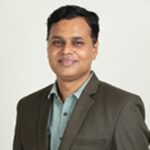
Mr. Surendra Tripathi
Assistant Professor
surendratripathi@kgr.ac.in
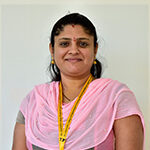
Mrs. P Vaishnavi
Assistant Professor
p.vaishnavi@kgr.ac.in

Mrs. K Swapna Rani
Assistant Professor
swapna@kgr.ac.in

Mrs. K Sai Krishna
Assistant Professor
saikrishnak@kgr.ac.in
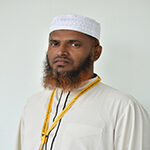
Mr. Ahmed Mohiuddin
Assistant Professor
ahmedmohiuddin@kgr.ac.in
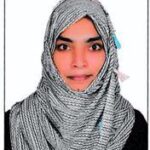
Ms. Nasra Fatima
Assistant Professor
nasrafatima@kgr.ac.in

Mr. K Chidananda
Assistant Professor
chidanand.k@kgr.ac.in

Ms. G Shanya Psalms
Assistant Professor
shanyapsalms.g@kgr.ac.in

Mr. Arun Kumar S
Assistant Professor
arunkumars@kgr.ac.in

Mrs. Saraswathi Devi P
Assistant Professor
saraswathidevip@kgr.ac.in

Mr. Bharath Naik
Assistant Professor
bharathnaik@kgr.ac.in

Mr. Hari Prasad G
Assistant Professor
hariprasadg@kgr.ac.in
Faculty Achievements
FACULTY ACHIEVEMENTS(DEC-2024)
- Dr.Bharath reddy, Associate professor got Best HoD Award certificate of Excellence is awarded from International Award Ceremony on Star Achievers in Higher Educational Institutions [SAHEI 2024]
FACULTY ACHIEVEMENTS(DEC-2023)
1.Dr.S.Bharath Reddy got certificate of Participation STTP on Federated Machine Learning(Healthcare,Cloud Computing and IoT) from Vardhaman College of Engineering.
2.Dr.B.Hari Krishana got certificate of Participation STTP on Federated Machine Learning(Healthcare,Cloud Computing and IoT) from Vardhaman College of Engineering.
3.Dr.L.Raghu Kumar got certificate of Participation STTP on Federated Machine Learning(Healthcare,Cloud Computing and IoT) from Vardhaman College of Engineering.
4.Dr.Srinivas Jhade got certificate of Participation STTP on Federated Machine Learning(Healthcare,Cloud Computing and IoT) from Vardhaman College of Engineering.
5.Y.Venkat Rao got certificate of Participation STTP on Federated Machine Learning(Healthcare,Cloud Computing and IoT) from Vardhaman College of Engineering. 6.Surendra Tripathi got certificate of Participation STTP on Federated Machine Learning(Healthcare,Cloud Computing and IoT) from Vardhaman College of Engineering.
7.Mrs.M.Manasa got certificate of Participation STTP on Federated Machine Learning(Healthcare,Cloud Computing and IoT) from Vardhaman College of Engineering. 8.Mr.M.Lakshmikanth got certificate of Participation STTP on Federated Machine Learning(Healthcare,Cloud Computing and IoT) from Vardhaman College of Engineering.
9.K.Swapna rani got certificate of Participation STTP on Federated Machine Learning(Healthcare,Cloud Computing and IoT) from Vardhaman College of Engineering.
10.P.Vaishnavi got certificate of Participation STTP on Federated Machine Learning(Healthcare,Cloud Computing and IoT) from Vardhaman College of Engineering. 11.K.Sai Krishna got certificate of Participation STTP on Federated Machine Learning(Healthcare,Cloud Computing and IoT) from Vardhaman College of Engineering.
ATAL FDP
12.Dr.S.Bharath Reddy got certificate of ATAL FDP from INSTITUTE OF AERONAUTICAL ENGINEERING.
13.Dr.B.Harikrishna got certificate of ATAL FDP from INSTITUTE OF AERONAUTICAL ENGINEERING.
14.Dr.L.Raghu kumar got certificate of ATAL FDP from INSTITUTE OF AERONAUTICAL ENGINEERING.
15.Dr.Srinivas Jhade got certificate of ATAL FDP from INSTITUTE OF AERONAUTICAL ENGINEERING.
16.Mrs.M.Manas got certificate of ATAL FDP from INSTITUTE OF AERONAUTICAL ENGINEERING.
17.Mr.Venkat Rao got certificate of ATAL FDP from INSTITUTE OF AERONAUTICAL ENGINEERING.
18.Mr.M.Lakshmikanth got certificate of ATAL FDP from INSTITUTE OF AERONAUTICAL ENGINEERING.
19.Surendra Tripathi got certificate of ATAL FDP from INSTITUTE OF AERONAUTICAL ENGINEERING.
20.K.Swapna Rani got certificate of ATAL FDP from INSTITUTE OF AERONAUTICAL ENGINEERING.
21.K.Sai Krishna got certificate of ATAL FDP from INSTITUTE OF AERONAUTICAL ENGINEERING.
22.Dr.S.Bharath Reddy got certificate of ATAL FDP from VJIT.
23.Dr.B.Harikrishna got certificate of ATAL FDP from VJIT.
24.Dr.L.Raghu kumar got certificate of ATAL FDP from VJIT.
25.Mrs.M.Manasa got certificate of ATAL FDP from VJIT.
26.Mrs.K.Swapna Rani got certificate of ATAL FDP from VJIT.
27.Ms.Nasra Fathima got certificate of ATAL FDP from VJIT.
28.Mr.K.Saikrishna got certificate of ATAL FDP from VJIT.29. Mr.Venkat Rao got certificate of ATAL FDP from VJIT.
Session Chair
1.Dr.S.Bharath Reddy got certificate of Session Chair in 5th International Conference(ICMED 2023)
2.Dr.B.Harikrishna got certificate of Session Chair in 5th International Conference(ICMED 2023).
3.Dr.B.Harikrishna got certificate of Session Chair in 3nd International Conference on Cognitive and Intelligent Computing (ICCIC)-2020-23.
Reviewer
4.Dr.B.Harikrishna got Certificate of Excellence in Peer-Reviewing award from B P International.
5.Dr.B.Harikrishna got Certificate of Appreciation as a Reviewer in Sandip Institute of Technology and Research Center.
6.Dr.B.Harikrishna got Certificate of 1st International Conference on Deep Learning IoT. Drone Technology.Smart Cities & Application (ICDIDSA-23)
7.Dr.B.Harikrishna got Certificate of Appreciation as a Reviewer in Sandip Institute of Technology and Research Center.
8 . Dr.B.Harikrishna got Certificate of Excellence In Peer-Reviewing organized by B P International,
Faculty Skill Development
1. Dr.B.Harikrishna got Certificate of Participated in a One Week(Online) Faculty Skill Development Program on Research Methodology,Design and Innovation organized by CVR College.
PAPERS PRESENTED
1.Dr.Srinivas Jhade got certificate of Participation Presenting Paper title of “ENERGY EFFICIENT FAULTDIAGNOSIS” in 5th International Conference(ICMED-2023).
2.Mr.K.Sai krishna got certificate of Participation Presenting Paper title of “SKILLFUL YIELD PREDICTION THROUGH MACHINE LEARNING METHODS” in 5th International Conference(ICMED-2023).
3.Mrs.K.Swapna Rani got certificate of Participation Presenting Paper title of “MACHINE LEARNING-BASED MOTION TESTING FRAME WORK” in 5th International Conference(ICMED-2023).
4.Mr.Mohammed Ahemad Mohiuddin got certificate of Participation Presenting Paper title of “THE SOFTWARE FILURE PREDECTION FIELDS PERFORMANCE OF MACHINE LEARNING” in 5th International Conference(ICMED-2023).
5.Mr. M.Lakshmikanth got certificate of Participation Presenting Paper title of “ROLE OF BLOCK CHAIN TECHNOLOGY IN REAL ESTATE” in 5th International Conference(ICMED-2023).
6.Ms.Nasra Fathima got certificate of Participation Presenting Paper title of “MACHINE LEARNING ALGORITHMS FOR PERSONALISED QOS AWARE WEB SERVICE RECOMMENDATION” in 5th International Conference(ICMED-2023).
7.Dr.Srinivas Jhade got certificate of FDP on Societal Application of Artificial intelligence and Machine Learning in Mechanical and Civil Engineering (18th –23rd December, 2023) Sponsored by CSIR organized by Department of Computer Science and Engineering Narsimha Reddy Engineering College(Autonomous).
8.Dr.L.Raghu kumar got certificate of Participation Presenting Paper title of “TRANSFORMATIVE ROLE OF PRIVATE AI IN SECONDARY EDUCATION” in 5th International Conference(ICMED-2023).
9.Mrs.M.Manasa got certificate of Participation Presenting Paper title of “SWETCHA-A WOMEN SAFETY APPLICATION WITH IotT DEVICE” in 5th International Conference(ICMED-2023).
10.Dr.S.Bharath Reddy got certificate of Participation Presenting Paper title of “FACE RECOGNIZATION SYSTEM USING LBPH” in 5th International Conference(ICMED-2023).
11.Dr.B.Harikrishna got certificate of Participation NPTEL E-Awareness workshop.
1)Dr.S.Bharath Reddy got participation certificate from BRAIN O VISION.
2) Mr.Harikrishna Bommala got Certificate Presentation of 4th International Conference on Smart Electronics and Communications (ICOSEC-2023)
3) Mrs. Manchala Manasa got participation certificate from BRAIN O VISION.
4) Mr. VenkatRao Yanamandni got participation certificate from CEED on Monthly seminar Mentoring skills.
5) Mr. Surendra Tripati got participation certificate from BRAIN O VISION.
6) Dr. Jhade Srinivas got participation certificate from BRAIN O VISION.
7) Ms.Nasra Fathima got participation certificate from BRAIN O VISION.
8) Mr. Lakshmikanth got participation certificate from CEED on Monthly seminar Mentoring skills.
9) Mrs.Nasra Fathima got participation certificate from CEED on Monthly seminar Mentoring skills.
10) Mr.Harikrishna Bommala got certificate from BRAIN O VISION.
11) Mr.Harikrishna Bommala selected as Program Committee Member of 12th International Conference on Soft Computing, Artificial Intelligence and Application (SCAI 2023).
12) Mr. Mohammed Ahamed Mohiuddin got participation certificate from BRAIN O VISION.
13) Mr. Venkata Rao Yanamadni got Coordinatorship certificate from KG Reddy College of Engineering & Technology
14) Mr. Venkata Rao Yanamadni got participation certificate from BRAIN O VISION.
15) Mr. Kudakala Sai Krishna got participation certificate from BRAIN O VISION.
16) Mr. Kudakala Sai Krishna got participation certificate from CEED on Monthly seminar Mentoring skills.
17) Dr..Harikrishna Bommala got award for organized National Level Faculty Development Program on Cloud Infrastructure(AWS).
18) Mr. Mohammed Ahamed Mohiuddin got Best Innovative teacher award from CEEDD presented by Principal.
19) K.Swapna rani got certificate of Monthly seminar on 21st century educator and learner from CEED
20) Dr.Harikrishna Bommala has got Work shop certificate on “Happiness is an Inside Activity” from CEED.
21) Nasra fathima has got Work shop certificate on “Happiness is an Inside Activity” from CEED.
22) Nasra fathima got certificate of Monthly seminar on 21st century educator and learner from CEED.
23) Dr.Harikrishna Bommala got participation certificate Online Faculty Development program on Advanced Natural Language Processing.
24) Dr.Harikrishna Bommala got participation certificate on Virtual Labs Faculty Development Program.
25) K.Swapna rani has got Work shop certificate on “Happiness is an Inside Activity” from CEED.
26) Dr.Harikrishna Bommala got certificate from National Institute of Technical Teachers Training and Research.
27) Dr.L.Raghu Kumar got certificate of Monthly seminar on 21st century educator and learner from CEED.
28) Mohammed Ahmed Mohiuddind has got Work shop certificate on “Happiness is an Inside Activity” from CEED.
29) Mohammed Ahmed Mohiuddind got Monthly seminar certificate on 21st century educator and learner from CEED.
30) M.Laxmikanth got Monthly seminar certificate on 21st century educator and learner from CEED.
31) Dr.Lingamallu Raghukumar has got Work shop certificate on “Happiness is an Inside Activity” from CEED.
32) Mrs.P.Vaishnavi has got Work shop certificate on “Happiness is an Inside Activity” from CEED.
32) Mrs.Manchala Manasa has got Mentoring certificate from CEED.
33) Manchala Manasa got certificate of Monthly seminar on 21st century educator and learner from CEED.
34) Dr.L.Raghukumar got guide ship from the university of Gandhi Institute of Engineering and Technology, GUNUPUR, (ODISHA).
1) Dr.S.Bharath Reddy got certificate of participation from Microsoft Power BI.
2) Dr.Hari Krishna Bommala got certificate of participation from Microsoft Power BI.
3) Dr.L.Raghu Kumar got certificate of participation from Microsoft Power BI.
4) Mrs.Manchala Manasa got certificate of participation from Microsoft Power BI.
5) Ms.Nasra Fathima got certificate of webinar on “Mastering Database: beginner’s guide to SQL”
6) Dr.L.Raghu Kumar has published two E3S Web of Conferences papers.
7) K.Swapna Rani got Innovative Teacher of monthly spot light award from K G Reddy College & Technology.
8) Hari Krishna Bommala selected as Program committee member of International Conference on Education & Integrating Technology (EDIT-2023).
- Mrs.Manchala Manasa published a paper in E3S Web of Conference ICMPC 2023.
- IoT-Based System for Automated Accident Detection and Rescue
- Automatic Number Plate Detection for Motorcyclists Riding Without Helmet
- Performance optimization for Intrusion Detection by Long Short Term Memory (LSTM)
- M.Laxmikanth published a paper in E3S Web of Conference ICMPC 2023.
- Determination of the estimated cost based on aggregated unit prices using information modeling (BIM) and text mining technologies
- Automated Cyber Bullying Activity Detection using Machine Learning Algorithm.
- Dr.L.Raghukumar got guide ship from the university of Gandhi Institute of Engineering and Technology, GUNUPUR, (ODISHA).
- Mr.Harikrishna Bommala selected as Program Committee Member of 12th International Conference on Soft Computing, Artificial Intelligence and Application (SCAI 2023).
- Mrs.Manchala Manasa got certificate of National Institute of Technical teachers Training and Research from Chandigarh
- Dr.L. Raghu Kumar has successfully published his paper, name as “Security Enhancement in Surveillance Cloud Using Machine Learning Techniques”, in International Journal on Recent and Innovation Trends in Computing and Communication.
- Mr.Y.Venkat rao has successfully published his paper in International Journal on Recent and Innovation Trends in Computing and Communication.
- Mrs.Manchala Manasa has got award of KGR Change maker award from KG Reddy College of Engineering and Technology, Hyd.
- One of our faculty Manasa Goparaju has achieved Digital Transformation Certificate which is conducted by University of Virginia.
- Mr.Surendra Tripathi has completed his NPTEL(Information Security-5-Security Systems Egineering) Online Certification Course successfully.
- Mr.Dr.Madhu has achieved Dr.Ambedkar’s Youth for Nation Award-2023.
- One faculty from our department Mr. Raghu Kumar has been awarded with Phd. Degree in the field of Computer science.
- One day Hackathon on Python Full Stack development has been conducted by our department in association with Brain O Vision , IIC for 2nd year students.
- Dr.jhade Srinivas has published a book entitled as Wireless communication mobile computing published by RK Publications.
- Dr Harikrishna Bommala got appointed as a subject expert for Advanced algorithms(R-18)
- Dr Harikrishna Bommala has invited as a jury member for the event of technical & culture fest in the name Techno sangram 2023,scheduled on 10th & 11th march,2023 organized by B R Engineering college,chilkoor,Hyd.
- Dr.Siva Shankar S, Associate professor, working in K G Reddy Engineering College and Technology, Chilkur, Moinabad.He has published of a book named “OBJECT ORIENTED SOFTWARE ENGINEERING” from GCS Publishers India. For the month of February 2023.
- Surendhr Soundarajan, Assistant professor of cse departmet, is got the aws training and certificate from aws, in the month of February 2nd 2023.
- Dr.Harikrishna Bommala from CSE has participated in “5 Days FDP on Innovative Teaching Learning Practices for Preparation of NEP-2020, which is organized by Department of Artificial Intelligence and Data Science in association with Internal Quality Assurance cell from 6th of February to 10th February, 2023.
- Dr.Siva Shankar S, department of cse, has done registration from Certificate of Registration for a UK Design grant in the month of February-2023.In respect of the SOLAR POWERED AGRICULTURED ROBOT.
- Dr.L.Raghu Kumar, assistant professor, has been collected the (student certification course) which are approx 60 from 3rd year CSE -A students.
- Dr.Siva Shankar S, Evaluate Summary of Thesis for award of Ph.D Degree in Computer Science and Engineering
- More than 80% Placement rate for students in reputed MNCs with good pay packages.
- Nearly 70% of IV Year B.Tech students pursue Internships in reputed MNC’s.
- 09MoUs’ with reputed Industries, Organizations and Institutions for Academic and Research collaborations.
- Students were published papers in reputed journals of their project works
NPTEL Course certified Faculty
| Faculty Name | Course & Certificate |
| Mr. N Srinivas | Theory of Computation |
| Mr. C Ramakrishna | Introduction to Internet of Things |
| Mrs. Ashwini Gulhane | Computer Networks |
List of Achievements of Faculty Members
| S. No | Name of The Faculty Member | Name of the Achievement | Date |
| 1 | Dr. Harikrishna | Chairing and coordinating the session at vasavi college | 27-28 dec 2022 |
| 2 | Dr. Harikrishna | External Examiner for conducting ML lab at MLR | 14-12-2022 |
| 3 | Dr. Uma maheshwari | Uttama Adyapika Award | |
| 4 | Dr. Harikrishna | Thesis for evaluation at opj university(adoption of cloud computing technology in Indian government organization its impact: a critical analysis) | 04-10-2022 |
| 5 | Dr. Harikrishna | Thesis for evaluation at opj university(Qualitative Lubricate on packet size enhancement in wireless body) | 08-10-2022 |
| 6 | Dr. Harikrishna | Thesis for evaluation at opj university(A study on the implementation of computer security organization) | 13-11-2022 |
| 7 | Dr. Harikrishna | Thesis for evaluation at opj university(Implementation and use of ERP systems and its impact on sectors in india ) | 12-12-2022 |
| 8 | Dr. Harikrishna | Thesis for evaluation at opj university(The design and implementation of secure identification on secure network protocol) | 07-10-2022 |
| 9 | Dr. Jhade Srinivas | Published a text book “WIRELESS COMMUNICATION MOBILE COMPUTING” in collaboration with RK publications(ISBN:978-93-95331-86-9) | Dec-2022 |
| S.No | Achievement Details |
|---|---|
| 1 | #OpenGovDataHack conducted in New Delhi on 01/11/2018 CSE Final Year Students Stood as Finalists |
Program Assessment Committee (PAC)
| S. No | Name of faculty | Designation | Position | Parent organization |
| 1. | Dr S.Bharath Reddy | HoD, Associate Professor | Program Coordinator | KGRCET |
| 2. | Mrs M.Manasa | Assistant professor | PAC Coordinator | KGRCET |
| 3. | Mr K.Sai Krishna | Assistant Professor | Module Coordinator-IV Year | KGRCET |
| 4. | Mr. Ahmed Mohiuddin | Assistant professor | Module Coordinator-III Year | KGRCET |
| 5. | Mr. M.Laxmikanth | Assistant professor | Module Coordinator-II Year | KGRCET |
| 6. | Dr. L.Raghu Kumar | Associate Professor | Member | KGRCET |
|
7. |
Mr. Surendra Tripathi | Assistant professor | Member | KGRCET |
| 8. | Dr. J.Srinivas | Associate Professor | Member | KGRCET |
Department Development Committee (DDC)
| S. No | Name of faculty | Designation | Position | Parent organization |
| 1 | Dr. S.Bharath Reddy | HoD, Associate Professor | Chairperson | KGRCET |
| 2 | Dr. L. Raghu kumar | Associate Professor | Coordinator,IQAC,EB | KGRCET |
| 3 | Mr. Surendra Tripathi | Assistant professor | Member (PRC) | KGRCET |
| 4 | Dr. J.Srinivas | Associate Professor | Member (DSA) | KGRCET |
| 5 | Ms. M. Manasa | Assistant professor | Member (PAC) | KGRCET |
| 6 | Mr. Y. Venkat Rao | Assistant professor | Member (FC) | KGRCET |
| 7 | Mr. Ahmed Mohiuddin | Assistant professor | Member (CEDD) | KGRCET |
| 8 | Ms. K.Swapna Rani | Assistant professor | Member (T & P) | KGRCET |
| 9 | Ms. Nasra Fatima | Assistant professor | Member (Mentoring) | KGRCET |
Finance Committee (FC)
| S. No | Name of faculty | Designation | Position | Parent organization |
| 1. | Dr. S.Bharath Reddy | HoD, Associate Professor | Chairperson | KGRCET |
| 2. | Mr.Y.Venkat Rao | Assistant professor | Coordinator | KGRCET |
| 3. | Dr. L Raghu Kumar | Associate professor | Member | KGRCET |
| 4. | Dr Hari Krishna Bommala | Associate Professor | Member | KGRCET |
| 5. | Mrs. P.Vishnavy | Assistant professor | Member | KGRCET |
Project Review Committee (PRC)
| Sl. NO | Name of the Faculty | Designation | Position | Parent organization |
| 1 | Dr S.Bharath Reddy | HoD, Associate Professor | Chairperson | KGRCET |
| 3 | Mr. Surendra Tripathi | Assistant professor | PRC Coordinator | KGRCET |
| 4 | Dr.Srinivas Jhade | Associate professor | Member | KGRCET |
| 5 | Dr. L. Raghu kumar | Associate professor | Member | KGRCET |
| 6 | Dr Hari Krishna Bommala | Associate Professor | Member | KGRCET |
| 7 | Dr.Siva Shankar Subramanian | Assistant professor | Member | KGRCET |
| 8 | Ms. K.Swapna Rani | Assistant professor | Member | KGRCET |
| 9 | Mr. Y. Venkat Rao | Assistant professor | Member | KGRCET |
| 10 | Mr. M.Laxmikanth | Assistant professor | Member | KGRCET |
- OS Lab
- DBMS
- Computer Network and Web Technology
- Machine Learning
- Compiler Design Lab
- CNS Lab
- DBMS Lab
- Data Structures Lab
- IT Workshop
- JAVA Program Lab
- Mobile Application Development Lab
- Machine Learning Lab
- Operating System Lab
- Python Lab
- Software Engineering Lab
- Software Testing Methodologies Lab
- Programming for Problem Solving Lab
Certificate Course
Courses in Computer Science and Engineering vary greatly in nature. Some are studied online, and some are presented in a classroom. Many courses lead to a certificate at their completion, which can be helpful when looking for a job. Whether students are new to the world of information technology, or are seeking to advance in your existing career, completing a course can only enhance student’s options. Computer Science and Engineering (CSE) professionals may select from a wide variety of non-degree computer science certifications to demonstrate their competence in a specialty, learn valuable skills, and advance their careers. A computer science and engineering certification validates a professional’s technical knowledge and experience with specific products, methods, or practices. Roles within the computer science industry that may require certification include systems engineer, security manager, network administrator, software developer, and project manager. Because these high-paying roles involve using technical expertise to manage and protect essential operations and sensitive data, employers value — and often require — proven credentials.
Computer science certifications ask candidates to pass one or more tests. In preparing to pass these credentialing exams, professionals gain and practice certain skills. Many professionals value the process of preparing for these tests since they gain knowledge they can apply in their jobs and use to advance their careers. This course at the Best B.Tech. CSE College is a forum to bring together students to discuss innovative ideas and diverse topics of this course on next generation of information technologies. Department has taken a new step for students to improve the quality of study through this course and become most wide scale , extensive, spectacular event in computer science engineering.
Objective of Certificate Course
In the field of Computer Science and Engineering, a student’s set of skills must constantly be updated and expanded. Programming languages fluctuate in popularity from year to year, and new advances are made in networking and security technology. The completion of a short course or certificate program demonstrates knowledge of the latest tools and concepts, and can lend a distinct advantage in a competitive job market. Computer Science and Engineering courses are offered at KG Reddy College of Engineering and Technology – renowned as the Best B.Tech. Computer Science College. It is easy to find appropriate courses in area of interest. Students can choose from specialized topics including programming languages, networking, computer security, and multimedia development, Artificial Intelligent, cloud computing, Machine Learning etc. These courses of study can often be taken individually; other times, they are offered in conjunction with a degree program.
Scope of the Course
Depending upon the interest the career in IT can be chosen. Those who love programming and coding can do software engineering and those who prefer networking and system administration, can do hardware engineering. IT sector is quite broad in terms of employment and job options. Roles are varieties for Computer engineers in IT sector, but their primary role is to apply the knowledge of mathematics and science to design and develop software to be used by clients or users. There are network engineers, system management professionals besides the computer engineers. Computer software engineers have bright career prospects as the application of software and dependency on it in various walks of life are increasing. After completion of certificate course at the best computer science engineering colleges, they can gain much more knowledge based on latest technology which are available in IT sector. Thus it helps to them to make their bright carrier in different directions such as (a) an software engineer, (b) Researcher, (c) great academician, (d) make own software industry, (e) system administration etc.
| Sl.No | Name of the Program | Industry Partnership | Duration |
| Course Name | Duration of the Course | No. of Students Attended | No. of Students Appeared Examination | No. of Students Passed | Academic Year |
|---|---|---|---|---|---|
| Guest Lecture on Blockchain Technology | 18-10-2022 to 18-10-2022 | 190 | 190 | 190 | 2022-23 |
| Certification Course on Foundation of Blockchain Technology | 02-12-2022 to 17-02-2023 | 36 | 36 | 36 | 2022-23 |
| Certification Course on Introduction to Blockchain Technology | 07-03-2023 to 13-06-2023 |
65 | 65 | 65 | 2022-23 |
| Certification Course on Advance course on Blockchain Technology | 05-05-2023 to 07-07-2023 |
36 | 36 | 36 | 2022-23 |
| Certification Program On Web Development |
20.12.2022 to 20.12.2022 |
23 | 23 | 23 | 2022-23 |
| Certification Course on Python Full Stack | 22.11.2022 to 22.11.2022 |
86 | 86 | 86 | 2022-23 |
| Advance Certification Program on Web Development | 10.01.2023 to 10.01.2023 |
21 | 21 | 21 | 2022-23 |
| Blockchain Business Consulting | 23-10-2021 – 23-10-2021 | 17 | 17 | 17 | 2021-22 |
| International Blockchain Congress | 08-05-2022-08-05-2022 | 31 | 31 | 31 | 2021-22 |
| A Four Week Foundation Course on Data Analytics | 26.06.2021 | 20 | 20 | 20 | 2020-21 |
| Foundational Course in Artificial Intelligence and Machine Learning | 26.02.2021 to 19.03.2021 | 22 | 22 | 22 | 2020-21 |
| A Four Week Advance Course on Data Analytics | 09.06.2021 to 01.07.2021 | 30 | 30 | 30 | 2020-21 |
| Advanced Course in Artificial Intelligence and Machine Learning | 20-07-19 to 16-11-19 |
66 | 66 | 66 | 2020-21 |
| OOPs Through JAVA | 20-07-19 to 16-11-19 |
66 | 66 | 66 | 2019-20 |
| Advanced C Programming | 20-07-19 to 16-11-19 |
66 | 66 | 66 | 2019-20 |
| Internet of Things (IOT) | 11-02-2019 to 15-02-19 |
101 | 101 | 101 | 2018-19 |
| Microsoft Technical Associate Database Fundamentals (MTA DBF) | 27-08-18 to 01-09-18 |
96 | 96 | 96 | 2018-19 |
| Web Design | 15-02-18 to 19-02-18 |
96 | 96 | 96 | 2017-18 |
| Cloud Computing & Security | 08-01-18 to 12-01-18 |
86 | 86 | 86 | 2017-18 |
| Database Programming with SQL | 30-10-17 to 03-11-17 |
109 | 109 | 109 | 2017-18 |
| 2022 – 2023 Placements | |||
| SL.NO | Roll number | Name | Company |
| 1 | 19QM1A0598 | Shivani Gupta | Nitro network |
| 2 | 19QM1A0530 | Gaddam Deepika | Quadrant Resource |
| 3 | 19QM1A0586 | Sumanth Pagadala | Atomstate |
| 4 | 19QM1A0516 | Darga Shivani | TCS |
| 5 | 19QM1A05A9 | Jaisingh. | Programme.io |
| 6 | 19QM1A0557 | Tarun Kotagiri. | Lomos |
| 7 | 19QM1A0548 | K Sravanthi | Quadrant Resource |
| 8 | 19QM1A0538 | Govindagari Shiva Prasad Reddy | Quadrant Resource |
| 9 | 19QM1A0540 | Hrushinath Gunda | Bot Defence Infotech solutions |
| 10 | 19QM1A0550 | Kankanala Harshini | Quadrant Resource |
| 11 | 19QM1A0517 | Karthik Dasari | Turing Minds |
| 12 | 19QM1A0533 | Garlapati Nikil | Bot Defence Infotech solutions |
| 13 | 19QM1A0541 | Gunja Jyothi | Sri Katyayani Advertising |
| 14 | 19QM1A05A0 | Swapnil Choudhary | Adqura |
| 15 | 19QM1A0590 | Pochaboyina Bhavani | Bot Defence Infotech solutions |
| 16 | 19QM1A0599 | Sriramoju Anjali | Quadrant Resource |
| 17 | 19QM1A05A3 | Mahesh Babu | Turing Minds |
| 18 | 19QM1A0523 | Maharaj Donakanti | Bot Defence Infotech solutions |
| 19 | 19QM1A0542 | Gurram Sowmya | Turing Minds |
| 20 | 19QM1A0537 | Gundla Durga Prasad. | Vinex Innovations |
| 21 | 19QM1A0578 | Molihati Vamshi | Quadrant Resource |
| 22 | 19QM1A0528 | Eruku Sneha | Bot Defence Infotech solutions |
| 23 | 19QM1A05B0 | V Chandar Reddy | Quadrant Resource |
| 24 | 19J11A0513 | Mittapally Srikanth | Vinex Innovations |
| 25 | 19QM1A0545 | Jangam Rajkumar | Quadrant Resource |
| 26 | 19QM1A0547 | Pravalika Koninti | Bot Defence Infotech solutions |
| 27 | 19QM1A0583 | Nishad Unnisa | Planet spark |
| 28 | 19QM1A0549 | Kandakatla Anushreddy | Vinex Innovations |
| 29 | 19QM1A0592 | Ramarthi Akshaya | Quadrant Resource |
| 30 | 19QM1A0579 | Mula Samitha Goud | Bot Defence Infotech solutions |
| 31 | 19QM1A0573 | Mohammad Wazahathulla Baig | Addod |
| 32 | 19QM1A0574 | Mohammed Abdul Hadi | Addod |
| 33 | 19QM1A0568 | Mannepally Bhavyasree | Vinex Innovations |
| 34 | 19QM1A0563 | Malupati Shreya | Planet spark |
| 35 | 19QM1A0554 | Konduru Jyosthna | Adqura |
| 36 | 19QM1A05A2 | Taidala Lakshmi Kanth | Quadrant Resource |
| 37 | 19QM1A0581 | Nallamadhi Sai Priya | Quadrant Resource |
| 38 | 19QM1A0571 | Mettu Ramya | Vinex Innovations |
| 39 | 19QM1A0536 | Gorijavolu Harshavardhani | Bot Defence Infotech solutions |
| 40 | 19QM1A0539 | G.Bharatwaj Gudiboina | Vinex Innovations |
| 41 | 20QM5A0506 | Kasani Swathi | Quadrant Resource |
| 42 | 20QM5A0505 | H Raju Goud | Addod |
| 43 | 19QM1A0535 | G. Vishvas Reddy | BYJU’S |
| 44 | 18QM1A0558 | M Pranay Kumar | Caliber technologies |
| 45 | 19QM1A0529 | G Manasa | Quadrant Resource |
| 46 | 19QM1A0520 | Ashrith Kumar | Nitro network |
| 47 | 19QM1A0576 | Mohammed Taufiq Ur Rehman | Quadrant Resource |
| 48 | 19QM1A0552 | Katne Shruthi. | Vinex Innovations |
| 49 | 19QM1A0543 | I. Prathik | BYJU’S |
| 50 | 19QM1A0501 | Aluru Sumanth | Addod |
| 51 | 19QM1A05B4 | Yash Chandan | Quadrant Resource |
| 52 | 20QM5A0501 | Banoth Pavan | Quadrant Resource |
| 53 | 19QM1A0558 | Kothagadi Sravya Reddy | BYJU’S |
| 54 | 19QM1A0562 | Malge Shubham | Pentagon Space Pvt Ltd |
| 55 | 20QM5A0507 | Konda Sai Madhav | Intellipat |
| 56 | 19QM1A0595 | Sai Manideep Kodithyala | Quadrant Resource |
| 57 | 19QM1A0503 | Annavarapu Vvs Gangadhar | Bot Defence Infotech solutions |
| 58 | 19QM1A0589 | Pobbathi Hepsibha | Quadrant Resource |
| 59 | 19QM1A0582 | Nallangi Shireesha | Quadrant Resource |
| 60 | 19QM1A0575 | Mohammed Aftab | Addod |
| 61 | 19QM1A05A4 | Tehniyath Tanzeem | Addod |
| 62 | 20QM5A0512 | Kankanala Shravan Kumar | Quadrant Resource |
| 63 | 19QM1A0532 | Gaddmidi Vamshidar Reddy | Quadrant Resource |
| 64 | 19QM1A0507 | Bikkina Damodhara Hari | Addod |
| 65 | 19QM1A0508 | Buchanpally Swathi | Addod |
| 66 | 19QM1A0577 | Mohd Abdul Muqeem | Quadrant Resource |
| 67 | 18QM1A0575 | P Saicharan Reddy | Caliber technologies |
| 68 | 18QM1A05A2 | Syed Ahmed Hussain | Caliber technologies |
| 69 | 19QM1A05B3 | Vombravalli Shankar | Quadrant Resource |
| 70 | 18QM1A05B0 | Turaka Venkata Mounik | Caliber technologies |
| 71 | 20QM5A0510 | Sriramulu Nivas | Planet spark |
| 72 | 20QM5A0503 | Erra Parushuram | Addod |
| 73 | 20QM5A0504 | Gaadhamshetti Rakesh | Addod |
| 74 | 19QM1A0526 | Ekke Sai Kiran | Intellipat |
| 75 | 19QM1A05A1 | Tadoori Bharath | Addod |
| 76 | 20QM5A0502 | Barkam Karunakar | Addod |
| 77 | 18QM1A0548 | K Anand Vardhan | Caliber technologies |
| 78 | 19QM1A0597 | Sheik Tasleem Khatoon | Quadrant Resource |
| 79 | 19QM1A0504 | Arif Khan | Addod |
| 80 | 19QM1A0546 | Janumula Maadhaov | Quadrant Resource |
| 81 | 19QM1A0572 | Minnakanti Saiteja | Quadrant Resource |
| 82 | 19QM1A0510 | Chinthamani Ritesh Singh | Addod |
| 83 | 19QM1A0511 | Chirala Vamsi | Addod |
| 84 | 20QM5A0509 | Shaik Karishma Banu | Planet spark |
| 85 | 19J11A0505 | Devarakonda Renuka | Caliber technologies |
| 86 | 19QM1A0566 | Mane Lakshmi Prasanna | Vinex Innovations |
| 87 | 19QM1A0564 | Mamidi Pally Maheshwar Reddy | Addod |
| 88 | 19QM1A0565 | Mandapuram Rahul | Addod |
| 89 | 18QM1A0546 | J Jahnavi | Caliber technologies |
| 90 | 19QM1A0512 | Chitturi Hemalatha | Vinex Innovations |
| 91 | 19QM1A05A6 | Thakur Lakhan Singh | Addod |
| 92 | 19QM1A05A8 | Turpu Mahender Reddy | Planet spark |
| 93 | 19QM1A0584 | P Srinivas Koundinya | Quadrant Resource |
| 94 | 19QM1A05A5 | Thakur Karthik Singh | Addod |
| 95 | 19QM1A0515 | Darga Pravalika | Quadrant Resource |
| 96 | 19QM1A0591 | Puntala Sushma. | Vinex Innovations |
| 97 | 19QM1A05B1 | Vadala Snehitha Reddy | Quadrant Resource |
| 98 | 19QM1A0502 | Aman Rajesh Singh Thakur | Addod |
| 99 | 19QM1A0585 | Putta Venkatalakshmi. | Vinex Innovations |
| 100 | 19QM1A0594 | Rao Asrith | Quadrant Resource |
| 101 | 19QM1A05B2 | Velpula Srikanth Yadav | Quadrant Resource |
| 102 | 18QM1A05A9 | T Amruth Reddy | Caliber technologies |
| 103 | 19QM1A05A6 | Thakur Lakhan Singh | Quadrant Resource |
| 104 | 20QM5A0508 | Pasham Bhargavi | Planet spark |
| 105 | 19QM1A0556 | Saikiran Kota | Bot Defence Infotech solutions |
| 106 | 19QM1A0587 | Panchumart Hi Abhinav Sai Choudary | Quadrant Resource |
| HIGHER EDUCATION DETAILS | ||||
| S.NO | ROLL NUMBER | NAME | Post Graduation Degree | UNIVERSITY |
| 1 | 18QM1A05A1. | Sushanth Babu Tammali | MS | Cardiff Metroplitian University |
| 2 | 19QM1A0584 | Srinivas Koundinya | MS | University Of Alabama at Birmingham |
| 3 | 19QM1A0566 | M.Lakshmi Prasanna | M.Tech | Vasavi College of Engineering |
| 4 | 20QM5A0501 | B.Pavan | M.Tech | University College of Engineering |
| 5 | 19QM1A0517 | Dasari Karthik | M.Tech | JNTUH University College of Engineering |
| 6 | 19QM1A0572 | Sai Teja Mannakanti | M.S | University of North America |
| Entrepreneurship details | ||||||
| Roll Number | Name Of The Student | Mobile | E-Mail ID | Name of the company | Established Year | Registered Year |
| 19QM1A0557 | Kotagari Tarun | 7032611447 | Tarunkotagiri007@gmail.com | Trinefly Private Limited | 2022 | 2023 |
2021 – 2022 Placements
| SL.NO | Roll number | Name of the student | Company |
| 1 | 18QM1A0512 | Shailaja Badhagowni | Caliber technologies |
| 2 | 18QM1A0593 | S. Hanish | IICL |
| 3 | 18QM1A0501 | A Amar Sai Reddy | Caliber technologies |
| 4 | 18QM1A0519 | Chilam Anucharitha Reddy | Addod |
| 5 | 18QM1A0585 | R Soundarya | Bright champs |
| 6 | 18QM1A0530 | Gaddameedi Sandhya | Harman |
| 7 | 18QM1A0533 | G. Keerthi | Infosys |
| 8 | 18QM1A0534 | Godha Rajitha | Turing minds |
| 9 | 18QM1A0538 | G. Akhilesh | Addod |
| 10 | 18QM1A0577 | Pedda Kurva Sai | Capgemini |
| 11 | 18QM1A0587 | Ramavath Vamshi | Pentagonspace |
| 12 | 19QM50509 | Akhiluddin Mohammad | Tcs |
| 13 | 18QM1A0562 | Malgari Ravali Reddy | Turing minds |
| 14 | 18QM1A0578 | Piske Amulya | Addod |
| 15 | 19QM5A0512 | Suddyreddy Vamshidhar Reddy | Bright champs |
| 16 | 18QM1A05A7 | Thanniru Ankam Raju | Addod |
| 17 | 19QM5A0507 | Mandapalli. Sadhana | Harman |
| 18 | 18QM1A0542 | Guttula Lokesh | Hexaware |
| 19 | 18QM1A0564 | Akhila | Adp |
| 20 | 18QM1A0561 | Madhuri Sirilal | Addod |
| 21 | 18QM1A05B8 | Y. Harish | Caliber technologies |
| 22 | 18QM1A0507 | Amula Pavan Kumar | Hexaware |
| 23 | 18QM1A0583 | R Mounika | Bright champs |
| 24 | 18QM1A0522 | Dusa Shiva Teja | Addod |
| 25 | 18QM1A0513 | B. Vineela | Addod |
| 26 | 18QM1A0505 | Akash Makane | Hexaware |
| 27 | 18QM1A05B7 | Yakara Ashwini | Harman |
| 28 | 18QM1A0582 | Pyarasani Jyotsna | Bright champs |
| 29 | 18QM1A0590 | S. Geetha Saranya | Addod |
| 30 | 18QM1A0511 | Ashwini Naveen Kumar | Hexaware |
| 31 | 18QM1A05B4 | Vineela S | Turing minds |
| 32 | 18QM1A0541 | Sharon | Cdk global |
| 33 | 18QM1A0515 | B. Thirumala Hruday | Addod |
| 34 | 18QM1A0508 | Appala Ravi Teja | Caliber technologies |
| 35 | 19QM5A0503 | Devarakonda Sanath Kumar | Harman |
| 36 | 18QM1A05B2 | Vadari Dhruva | Addod |
| 37 | 18QM1A0549 | Kaushik Tiwari | Adp |
| 38 | 18QM1A0584 | Sairam | Hexaware |
| 39 | 18QM1A0581 | Pusthakala Divya | Infosys |
| 40 | 18QM1A0514 | Bosle Priyanka | Iopex |
| 41 | 18QM1A0599 | Surakanti Ruchita Reddy | Kfintech |
| 42 | 18QM1A0545 | Joga Kalyan | Hexaware |
| 43 | 18QM1A0579 | P.Vinay Kumar | Tcs |
| 44 | 18QM1A0504 | Akarapu Maniraju | Hexaware |
| 45 | 18QM1A05A1 | Sushanth Babu Tammali | Revature |
| 46 | 19QM5A0501 | Chinthala Aparna | Addod |
| 47 | 18QM1A0526 | G.Meghna Reddy | Tcs |
| 48 | 18QM1A0521 | Abhinav | Packet preb (qualit labs) |
| 49 | 18QM1A05B9 | Sai Satya | Tcs |
| 50 | 18QM1A0554 | Kesari Madhuri | Addod |
| 51 | 18QM1A0506 | Alluri Ashish Vardhan | Bright champs |
| 52 | 18QM1A0589 | Rotikadi Swathi | Caliber technologies |
| 53 | 18QM1A0503 | A Mary Shylu | Turing minds |
| 54 | 18QM1A0596 | Anusha Yadav | Wipro |
| 55 | 18QM1A0595 | Singanamoni Mohan | Solugenix technologics |
| 56 | 18QM1A0544 | Jalagari Saikrishna | Hexaware |
| 57 | 19QM5A0506 | K.Sai Kumar | Tcs |
| 58 | 18QM1A0536 | Golla Srinivas Yadav | Turing minds |
| 59 | 18QM1A0594 | Silvari Sairam | Caliber technologies |
| 60 | 18QM1A0516 | Boja Yashoda Krishna | Hexaware |
| 61 | 18QM1A0517 | Bokka Srinivas Reddy | Addod |
| 62 | 18QM1AO557 | Kavya Sree | Wipro |
| 63 | 18QM1A0566 | Mohammed Suhaibuddin | Caliber technologies |
| 64 | 18QM1A0528 | Gaddam Jayanth Reddy | Hexaware |
| 65 | 18QM1A0540 | Gudla Vinay Raj | Addod |
| 66 | 18QM1A0518 | Keerthi | Visudh ajivam |
| 67 | 18QM1A0551 | Kavali Praneeth Babu | Hexaware |
| 68 | 18QM1AO571 | Madhusudhan Reddy | Wipro |
| 69 | 18QM1A0588 | Rayyan Ahmed | Caliber technologies |
| 70 | 18QM1A05A3 | T Mani Teja | Addod |
| 71 | 18QM1A0567 | Anusha Mokila | Packet preb (qualit labs) |
| 72 | 18QM1A0535 | Gogikar Nikhil | Visudh ajivam |
| 73 | 18QM1A0552 | Kesari Madhuri | Addod |
| 74 | 18QM1A0572 | P Mukesh Yadav | Caliber technologies |
| 75 | 18QM1A0573 | P Rakesh Reddy | Addod |
| 76 | 18QM1A0576 | Patlolla Prerana Reddy | Visudh ajivam |
| 77 | 18QM1A0523 | Eedammagari Sireesha | Addod |
| 78 | 18QM1A0524 | Firas Rasheed | Hexaware |
| 79 | 18QM1A0569 | Nimmala Rajeshwari | Caliber technologies |
| 80 | 18QM1A0531 | Gandla Anusha | Hexaware |
| 81 | 18QM1A0537 | Gongati Arun Kumar Reddy | Addod |
| 82 | 18QM1A0553 | Tarun Reddy | Visudh ajivam |
| 83 | 18QM1A0574 | Pashamoni Lavanya | Caliber technologies |
| 84 | 18QM1A05A8 | Mahitha Thumma | Turing minds |
| 85 | 18QM1A05A5 | Uttam Kumar Thatipamula | Caliber technologies |
| 86 | 18QM1A0556 | Kukutla Sainishanth Reddy | Addod |
| 87 | 18QM1A0557 | Kummari Kavya Sree | Hexaware |
| 88 | 18QM1A0559 | Madabushi Saketh | Addod |
| 89 | 18QM1A0560 | Maddala Sri Jana Sai Pavan | Hexaware |
| 90 | 18QM1A0532 | Gangidi Harathi | Turing minds |
| 91 | 18QM1A0571 | P Madhusudhan Reddy | Caliber technologies |
| 92 | 18QM1A0527 | G S D Pranay Kumar Rao | Visudh ajivam |
| 93 | 18QM1A0555 | K.Harani | Turing minds |
| 94 | 18QM1A0520 | Chinmay Manas | Hexaware |
| 95 | 18QM1A0550 | K Bhavani | Turing minds |
| 96 | 18QM1A0539 | Gudise Anusha | Addod |
| 97 | 18QM1AO516 | Yashoda Krishna | Wipro |
2020 – 21 Placements
| SL.NO | Roll number | Name of the student | Company |
| 1 | 17QM1A0520 | Raja Karthik | Accenture |
| 2 | 17QM1A0575 | Rahul Renukuntla | TCS |
| 3 | 17QM1A0507 | Arelly Sri Chaithanya Kumar | Genpact |
| 4 | 17QM1A0519 | Chirag Keerthi Sree | Infosys |
| 5 | 17QMIA0545 | Kadari Vasavi | ADP |
| 6 | 16M51A05B5 | Faruk Monal | Reliance Jio Mart |
| 7 | 17QMA0591 | Vallabhanenu Sai Nikitha | DXC |
| 8 | 17QM1A0514 | Biradar Jaish | Infosys |
| 9 | 17QM1AO501 | Bhanu Priya | Infosys |
| 10 | 17QM1A0589 | Pavani V | ADP |
| 11 | 17QM1A0568 | Kunal | HCL |
| 12 | 17QM1A0511 | Nabi | BYJU’S |
| 13 | 17QM1A0559 | Maharshi Reddy | Cognizant |
| 14 | 17M51A0555 | Robin Singh | Effiasoft |
| 15 | 17QM1A0557 | Madhu Mamidi | Accenture |
| 16 | 17QM1A0576 | Soudamini | Infosys |
| 17 | 17QM1A0558 | Krishna Sai Mangalagiri | Infosys |
| 18 | 17QM1A0569 | P. Abhilash Reddy | Multiplier AI Solutions |
| 19 | 17QM1A0525 | Danturi Harshitha | Caliber technologies |
| 20 | 16QM1A0552 | Masanagudam Praveen Reddy | Reliance Jio Mart |
| 21 | 17L01A0503 | Dugaputi Charan | TK Chain |
| 22 | 17QM1A0572 | Puna Prachi | Caliber technologies |
| 23 | 17QM1A0587 | Telugu Sai Vinay | Cognizant |
| 24 | 17QM1A0526 | D. Vyshnavi | DXC |
| 25 | 17QM1A0577 | Sama Vani | ADP |
| 26 | 17QM1A0579 | Sappati Vasavi | Caliber technologies |
| 27 | 17QM1A0581 | Shaik Altaf Hussain | SS&C |
| 28 | 17QM1A0582 | Shankuri Harika | Caliber technologies |
| 29 | 17QMIA0503 | Poojitha | TCS |
| 30 | 17QMIA0544 | Kadari Roopesh | ADP |
| 31 | 17QM1A0523 | Dontula Vivek | TCS |
| 32 | 17QM1A0528 | G S Vaishnavi | SS&C |
| 33 | 17QM1A05B0 | D Amardeep Reddy | Wipro |
| 34 | 17L01A0504 | G Sai Renuka | Virtusa |
| 35 | 17L01A0505 | Kaja Satya Surya Manikanta | ADP |
| 36 | 17L01A0507 | Narkula Akhila | Genpact |
| 37 | 17L01A0509 | Tokala Naga Sruthi | ADP |
| 38 | 17M51A0503 | Ansar Fathima | SS&C |
| 39 | 17M51A0517 | Farhin Parvin | SS&C |
| 40 | 17QM1A0556 | M Manoj Kumar | Caliber technologies |
| 41 | 17M51A0536 | Mohd Abdul Azeem Khan | Virtusa |
| 42 | 17M51A0538 | Mohd Ubaid Mohiuddin | ADP |
| 43 | 17M51A0557 | Samsunnesha Khatun | Genpact |
| 44 | 17M51A0566 | Syed Moinuddin | ADP |
| 45 | 17QM1A0501 | A Bhanu Priya | SS&C |
| 46 | 17QM1A0503 | Adusumilli Naga Sai Poojitha | SS&C |
| 47 | 17QM1A0505 | Akkaladevi Sandeep | Wipro |
| 48 | 17QM1A0509 | Baddam Srujan Reddy | Caliber technologies |
| 49 | 17QM1A0515 | Bokka Sai Kiran Reddy | Wipro |
| 50 | 17QM1A0516 | Chanda Varun Raj | Caliber technologies |
| 51 | 17QM1A0518 | Chintal Vijay Kumar | ADP |
| 52 | 17QM1A0521 | Chityala Maheshwari | ADP |
| 53 | 17QM1A0522 | D Keerthi | Caliber technologies |
| 54 | 17QM1A0580 | Sarikonda Naveen Reddy | Caliber technologies |
| 55 | 17QM1A0527 | Dyavarashetty Goutham | SS&C |
| 56 | 17QM1A0529 | G Sai Pradhiksha | ADP |
| 57 | 17QM1A0530 | Gaddam Shirisha | Caliber technologies |
| 58 | 17QM1A0532 | Sudugu Supriya | ADP |
| 59 | 17QM1A0533 | Gangala Yamini | Caliber technologies |
| 60 | 17QM1A0534 | Gangavarapu Shanya Psalms | ADP |
| 61 | 17QM1A0541 | Gundu Jalaja Reddy | Caliber technologies |
| 62 | 17QM1A0536 | Gouravarapu Jayavenkatasai Gopi Aravind | Caliber technologies |
| 63 | 17QM1A0537 | Gouse M D | ADP |
| 64 | 17QM1A0538 | Gudguntla Naveen Kumar | Caliber technologies |
| 65 | 17QM1A0539 | Ghanapuram Shekar Reddy | Caliber technologies |
| 66 | 17QM1A0540 | Gundaveni Sai Charan | Caliber technologies |
| 67 | 17QM1A0535 | Gedela Srujana | ADP |
| 68 | 17QM1A0542 | Hrithik Singh | Caliber technologies |
| 69 | 17QM1A0544 | Kadari Roopesh | Caliber technologies |
| 70 | 17QM1A0545 | Kadari Vasavi | ADP |
| 71 | 17QM1A0546 | Kalpaguri Vinay Kumar Gupta | ADP |
| 72 | 17QM1A0547 | Kalwa Sai Charan | Caliber technologies |
| 73 | 17QM1A0549 | Karsai Srisailam Yadav | Caliber technologies |
| 74 | 17QM1A0551 | Kavya Dyasapally | SS&C |
| 75 | 17QM1A0554 | Lalchand Gurjar | ADP |
| 76 | 17QM1A0555 | Laxmi Venkata Lahari N | ADP |
| 77 | 17M51A0533 | Manikanta Buthkur | Wipro |
| 78 | 17QM1A0560 | Maregouni Priyanka | Caliber technologies |
| 79 | 17QM1A0562 | Mettu Anusha Reddy | SS&C |
| 80 | 17QM1A0563 | Mir Furqaan Ali | Caliber technologies |
| 81 | 17QM1A0570 | Permishetty Yeshwanth | Caliber technologies |
| 82 | 17QM1A0332 | Faizan Ali | Swiflearn |
| 83 | 17QM1A0573 | R Prakash Reddy | SS&C |
| 84 | 17QM1A0574 | Rameshwaram Satish Kumar | ADP |
| 85 | 17QM1A0513 | B Pranavi | DXC |
| 86 | 17QM1A0550 | Kotla Praneeth Reddy | Kyndryl |
| 87 | 17QM1A0567 | Jameel | Multiplier AI Solutions |
| 88 | 17QM1A0502 | Addisherla Poojashreni | Virtusa |
| 89 | 17QM1A0585 | Sulge Nikitha | ADP |
| 90 | 17QM1A0583 | Shubam Kumar | Caliber technologies |
| 91 | 17QM1A0586 | Talatoti Charles | Caliber technologies |
| 92 | 17QM1A0504 | Ajit Kulkarni | ADP |
| HIGHER EDUCATION DETAILS | ||||
| S.NO | ROLL NUMBER | NAME | Post Graduation Degree | UNIVERSITY |
| 1 | 17QM1A0530 | GADDAM SHIRISHA | MS | New England College |
| 2 | 17QM1A0534 | GANGAVARAPU SHANYA PSALMS | MTECH | Chaitanya Bharathi Institute Of Technology |
| 3 | 17QM1A0596 | YEMPATHI AASHRITHA | MTECH | Mahindra University |
| Entrepreneurship details | ||||||
| Roll Number | Name Of The Student | Mobile | E-Mail ID | Name of the company | Established Year | Registered Year |
| 16QM1A0501 | Alluri J Sai Teja | 9704075337 | jitendrasaiteja@gmail.com | Kheruva | 2019 | 2020 |
NEWS LETTER VOLUME 1
NEWS LETTER VOLUME 2
NEWS LETTER VOLUME 3
NEWS LETTER VOLUME 4
NEWS LETTER VOLUME 5
NEWS LETTER VOLUME 6
NEWS LETTER VOLUME 7
NEWS LETTER VOLUME 8
NEWS LETTER VOLUME 9
NEWS LETTER VOLUME 10
NEWS LETTER VOLUME 11
NEWS LETTER VOLUME 12
NEWS LETTER VOLUME 13
NEWS LETTER VOLUME 14
NEWS LETTER VOLUME 15
NEWS LETTER VOLUME 16
Contact Info

Dr.S.Bharath Reddy
Associate Professor & HoD
+91 9176318313
hod.cse@kgr.ac.in


